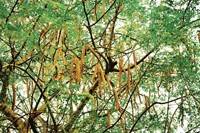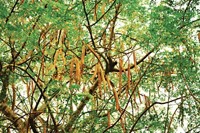Advertisement
Grab your lab coat. Let's get started
Welcome!
Welcome!
Create an account below to get 6 C&EN articles per month, receive newsletters and more - all free.
It seems this is your first time logging in online. Please enter the following information to continue.
As an ACS member you automatically get access to this site. All we need is few more details to create your reading experience.
Not you? Sign in with a different account.
Not you? Sign in with a different account.
ERROR 1
ERROR 1
ERROR 2
ERROR 2
ERROR 2
ERROR 2
ERROR 2
Password and Confirm password must match.
If you have an ACS member number, please enter it here so we can link this account to your membership. (optional)
ERROR 2
ACS values your privacy. By submitting your information, you are gaining access to C&EN and subscribing to our weekly newsletter. We use the information you provide to make your reading experience better, and we will never sell your data to third party members.
Materials
Tropical tree seeds provide sustainable water filtration
Sand blended with an extract from Moringa tree seeds removes bacteria from drinking water
by Deirdre Lockwood, special to C&EN
January 22, 2018
| A version of this story appeared in
Volume 96, Issue 4

Researchers have designed a simple drinking water filtration method using sand combined with a protein extract from the seeds of the Moringa oleifera tree, common in equatorial regions. Moringa seeds contain positively charged, water-soluble proteins that have been found to attract particles and kill bacteria. Stephanie Butler Velegol and Manish Kumar of Pennsylvania State University and their colleagues suspended ground-up Moringa seeds in water and then combined the liquid extract with sand. The researchers packed the sand into filter columns about 1 cm in diameter by 5–10 cm high and carried out tests to optimize the columns’ performance. The filters completely removed Escherichia coli from water in which the concentration of the bacteria was more than 100,000 times as great as that in typical wastewater samples (Environ. Sci. Technol. Lett. 2017, DOI: 10.1021/acs.estlett.7b00490). The researchers aim to develop the design into an easy, inexpensive, and sustainable way for households and communities in the developing world to clean water for drinking.





Join the conversation
Contact the reporter
Submit a Letter to the Editor for publication
Engage with us on Twitter